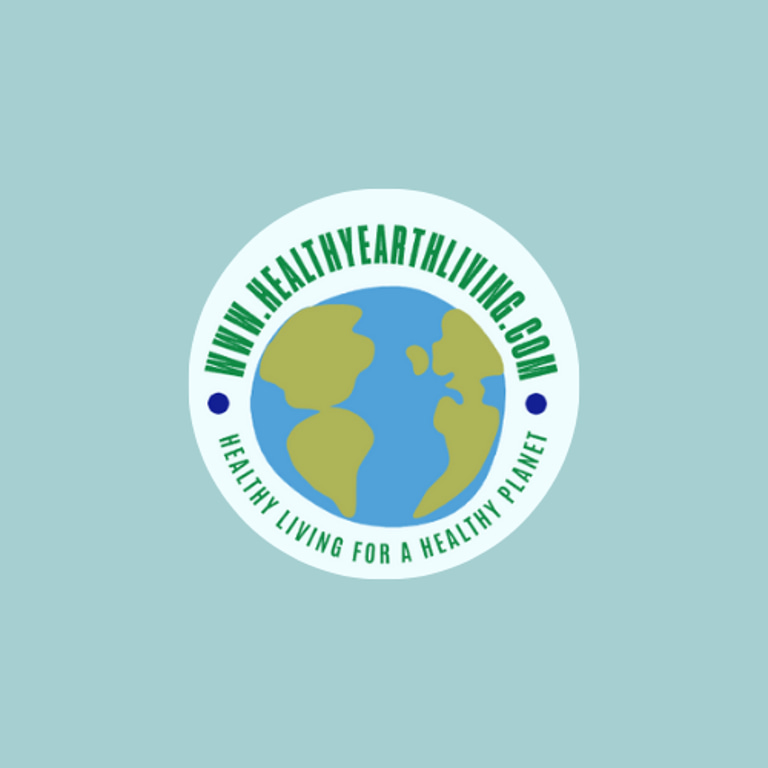Unlocking Inner Wellness: How Meditation Transforms Health
Discover the profound impact of meditation on health. Regular practice enhances mental clarity, reduces stress, and promotes overall wellness. Gain a deeper understanding of its benefits.
HOMEMINDBODY
Karyn Baioni MSN, RN
6/17/20247 min read


Exploring the rising popularity of meditation as a wellness practice
Meditation is gaining popularity because it is free and requires no equipment or gym membership to participate. All you need to participate is your thoughts and time. (1)
The diverse health benefits associated with regular meditation practice
Stress can lead to numerous disease processes. High blood pressure, diabetes, cholesterol issues, even fibromyalgia, and pain disorders can all be tied back to stress. In a study conducted in Korea, (2) researchers found that study participants who participated in brain-education-based meditation classes, as compared to primary education classes about diabetes and hypertension, were able to change their lab values significantly.


How meditation acts as a powerful stress management tool
By practicing meditation, you learn new ways to deal with all the information overload (3)that can pile up and lead to stress in your daily life. According to the Mayo Clinic, (1)meditation can give both physical and emotional benefits, including:
Giving you a new way to look at things that cause stress.
Building skills to manage your stress.
Making you more self-aware.
Focusing on the present.
Reducing negative feelings.
Impact of meditation on anxiety and mood disorders
When you meditate, you focus on your breath—just breathing in and out again. If your mind wanders, it’s ok. Just return your focus to your breathing. The calming nature of this practice helps decrease symptoms (4)of anxiety, depression, and ongoing stress.
When meditation, in conjunction with conventional medical treatment, has been found to help people who have post-traumatic stress disorder (PTSD).
Incorporating mindfulness meditation for improved mental clarity and emotional resilience
Mindfulness meditation (5) involves entirely focusing on experiences on a moment-to-moment basis. It is frequently used in school to help teachers and students reduce stress, anxiety, and conflicts, resolve conflicts, and improve concentration, memory, and resilience.


Exploring the physiological effects of meditation on the body
When you meditate, the practice not only calms your mind but also impacts (1)your body. Meditation can help you to:
Help you be more patient
Lower resting heart rate
Lower resting blood pressure
Help you sleep better
Meditation's role in lowering blood pressure and reducing inflammation
In Korea, (2) a study divided patients into two groups. One group meditated, and the other received education about ways to lower their blood pressure. After three months, the groups returned, and their blood pressures were measured.
The results showed that in the group that meditated, their blood pressures were reduced by four times compared to the group that only received health education. The study also showed a reduction in conditions caused by inflammation, such as asthma and rheumatoid arthritis.
Supporting immune function and overall wellness through regular meditation practice
“When you meditate, the heart rate drops, your respiratory rate drops. There is decreased oxygen consumption and decreased carbon dioxide expiration. The body is healing itself and starting to repair," says Maria Caselli, a group fitness instructor at the Mayo Clinic.
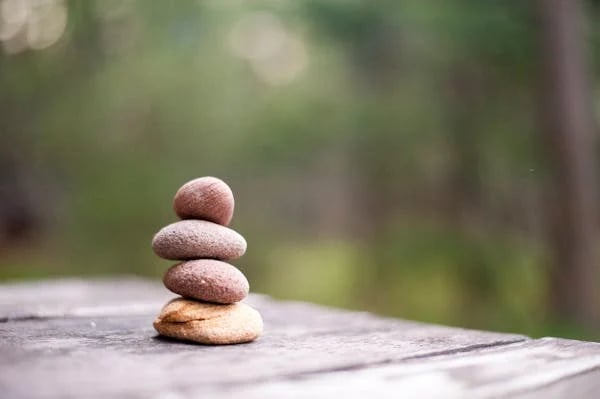

Neuroplasticity: How meditation reshapes the brain for better cognitive function
Neuroplasticity (6) is the brain's ability to change. One way to help your brain shift is to become healthier, not just by eating a healthier diet and exercising, although those are needed. You need to train your brain to, through meditation, think in a more positive light (4) daily.
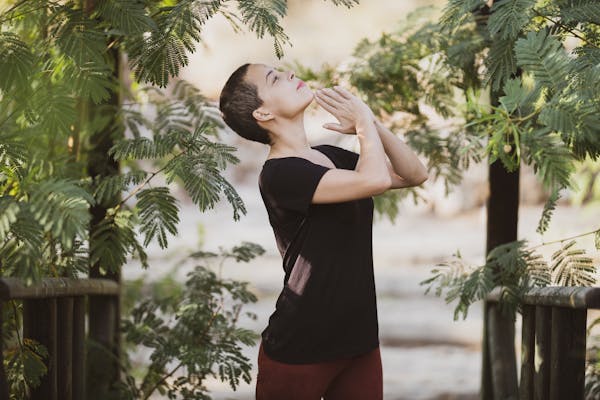

Enhancing focus, concentration, and memory through mindfulness meditation
When you clear the information overload from your thoughts, you improve focus, concentration, and memory.
The role of meditation in slowing cognitive decline and promoting brain longevity
The long-term effects (7)of increased stress and cortisol can harm many body systems, including memory. Meditation can decrease your stress level, slow your cognitive decline, and promote brain longevity.
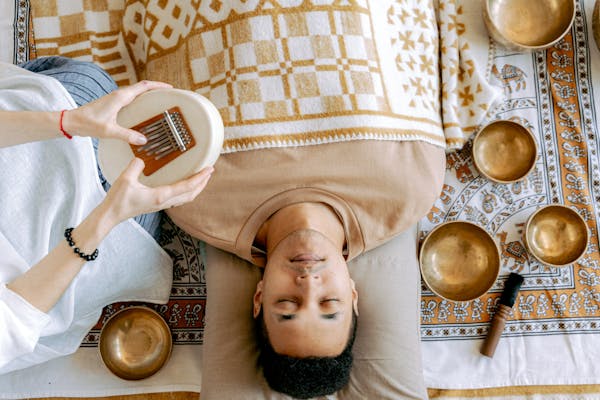

How meditation calms the mind and prepares the body for restful sleep
Meditation helps calm your mind from all the (1) from your day, which also helps to relax your body for a good night's sleep.
Mindfulness practices for overcoming insomnia and improving sleep patterns
Don’t stay in bed tossing and turning when you can't sleep at night. Get up, enter a quiet, dark room, and practice meditation. Focus on your breathwork.
Creating a bedtime meditation routine for optimal sleep hygiene
Every night, about 30 minutes before you plan to go to bed, stop using your electronics and start your bedtime routine. Try journaling to put all those negative thoughts down on paper to help clear your mind of all the negative thoughts accumulated throughout the day.
Once they are down on paper, they are no longer relevant. After you write down all the day's negatives, you could also write down three to five things you are grateful for that happened that day. Ending the day on a positive note is a sure way to get a good night's sleep.
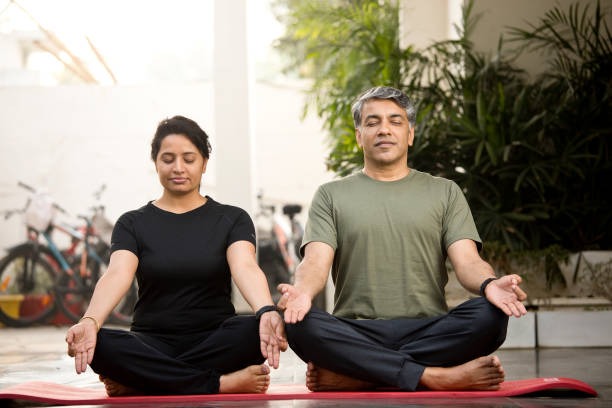

Developing self-awareness and empathy through meditation practice
Meditation can bring about inner peace (1) and calm. When you find this inner peace within yourself, you can be more empathic with others.
Improving communication and fostering deeper connections with others
When you are calm and not focused on your inner thoughts, you are more open to hearing what others are saying and hearing what they are telling you. When you listen to their stories, you will form a deeper connection with your friends and loved ones.
Using loving-kindness meditation to cultivate compassion and strengthen relationships
Loving-kindness meditation (LKM) (8) is when you think warm, positive thoughts about others from the heart. In the most basic terms, LKM genuinely thinks and does nice things for people. Think of a random act of kindness you could do for someone you know who is having a tough day.
What is something you could do to brighten their day today? It could be as basic as letting them know that you are thinking about them and that you are there for them if they need to talk or giving them a warm hug.
Whatever you feel is appropriate for the situation. Sometimes, it helps to put yourself in that person’s shoes and think about what you want someone to do for you.


The role of meditation in addiction recovery and relapse prevention
A study utilizing Recovery Dharma (RD), (9) a Buddhist-based peer support program for the treatment of addiction that includes mindfulness and meditation in meetings, program literature, and the recovery process, compared to infrequent, lengthy meditation sessions, found that the RD method had positive outcomes for people in recovery.
The peer support led to a higher recovery rate than those who did not use the RD method.
Mindfulness-based approaches for managing cravings and addictive behaviors
There have been several clinical trials (6) completed that have studied the impact of mindfulness-based relapse prevention (MBRP) and how they can help individuals battling addiction bring heightened awareness to their thoughts and feelings that trigger cravings.
Heightened awareness of these thoughts can help them develop better strategies to handle the cravings.
Integrating meditation into mental health treatment for holistic healing
Meditation is a holistic practice in that it has no pharmaceutical properties needed for it to be helpful. When treating mental health disease, a non-pharmaceutical approach can be beneficial.
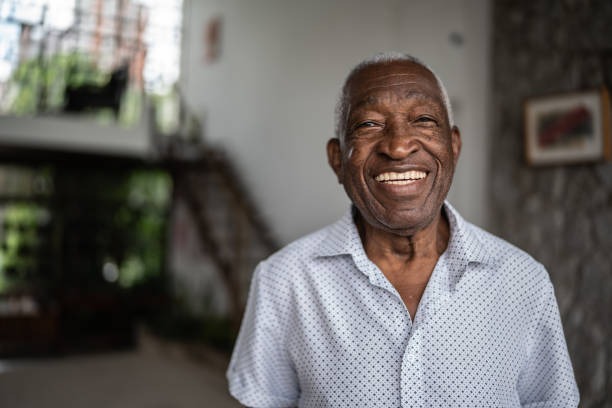

Meditation's potential impact on longevity and healthy aging
Meditation (5) can help to decrease stress, lower blood pressure, and improve sleep. All these things can help a person live a longer, healthier life!
Mind-body connection: How meditation promotes holistic well-being
Meditation to handle the information overload that we are constantly bombarded with daily can help calm our thoughts and, in turn, make us a healthier person.
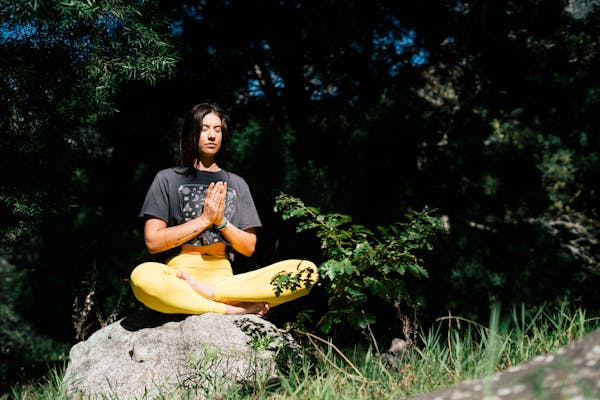

Addressing misconceptions and barriers to starting a meditation practice
Were you perfect the first time you tried a new hobby or sport? I doubt it. The first time you meditate, it will be the same way. Try these tips: (5)
Find a quiet space where you won't be disturbed.
Sit in a comfortable position.
Set a timer for how long you want to meditate. Try 10 to 15 minutes at first.
Close or partly close your eyes.
Focus on your breathing. Breathe in and out as you usually do. If it helps you to stay focused on your breath, try saying "breathe in" to yourself while breathing in. Say "breathe out" to yourself while breathing out.
When your mind wanders, simply notice it. Then, bring your focus back to your breath.
To end the meditation, stop focusing on the breath. But stay seated and keep your eyes closed for a minute or two.
When you're ready, open your eyes.
Tips for staying consistent and motivated in your meditation journey
You will improve with practice, like any new sport or hobby you try. Set a dedicated schedule to practice meditation, such as before bed or during your workday.
Seeking guidance and support from experienced meditation teachers and communities
Need help? There are meditation apps, trained teachers, and therapists that can guide you through your journey. There are even videos online that can help!


Bottom Line
Prioritize meditation as a cornerstone of their health and wellness regimen.
Don’t you think both your physical and mental health are worth the investment in time to meditate? There are so many benefits just waiting for you!
© 2025 Salo Content Writing LLC, all rights reserved
Join the Movement for a Healthier Planet! 🌿
Subscribe now and get your FREE Sustainable Living Checklist! Plus, enjoy weekly articles and delicious plant-based recipes straight to your inbox. Let’s make sustainable living simple and inspiring, one email at a time! 💚✨
